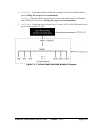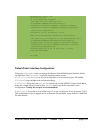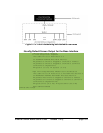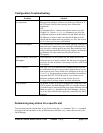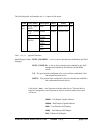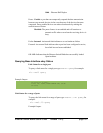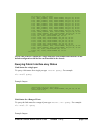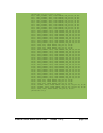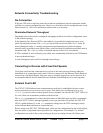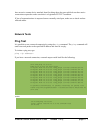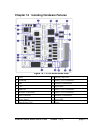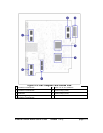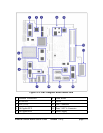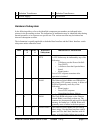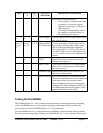
Network Connectivity Troubleshooting
No Connection
If the port LED is lit on the front panel, the switch has established a physical connection and the
problem is a network configuration error. Check to see if both devices are configured to be on the
same network (ex. 10.0.0.xxx) and that the subnet mask is set correctly.
Diminished Network Throughput
Depending on how the switch is configured, throughput problems can reflect configuration errors
in the network topology.
If the Spanning Tree Protocol (STP) is not enabled, it is possible for broadcast loops to occur
which can stress the network. The tcpdump (See the Ethernet Switch Blade User’s Guide for
more information) utility is a widely used network troubleshooting tool which can display
network traffic according to user-defined filters, which can help to troubleshoot problems such as
broadcast loops. The tcpdump utility is included with the switch’s OA environment.
If STP is enabled, be sure to identify ports which were automatically blocked by the STP daemon
to prevent broadcast loops.
A network diagram can be useful in isolating network loops.
Connecting to Devices with Fixed Port Speeds
Verify that switch and the connected devices are set to the same port speed setting, otherwise
diminished or no connections can be made. If devices connected to the Ethernet Switch Blade are
connected at a fixed Full Duplex, high error rates or sporadic connectivity can be observed. It is
recommended that all devices connected to the Ethernet Switch Blade be set to auto-negotiate.
External Fault LED
The EXT FLT LED indicates that communications could not be established with one or more
remote partner devices on an active port or ports. Ports which were configured to be up (via
ifconfig), but do not have remote partner devices attached, can cause the EXT FLT LED to be
lit, even if there are no hardware problems with the switch.
The OA zlc command can be used to check the status of individual ports and also to manipulate
how the EXT FLT LED is managed (globally or on a per-port basis). By default, the EXT FLT
LED is a global indicator. Use the zlc command to change how the LED is managed, to help
isolate external fault indications to a particular port.
Before acting on an EXT FLT LED indication, make sure the configuration for the switch reflects
how the chassis is populated with expected device configurations. For example, if a “default”
configuration was used on the switch to bring up all ports on startup, but not all of those ports
Ethernet Switch Blade User's Guide release 3.2.2j page 170



